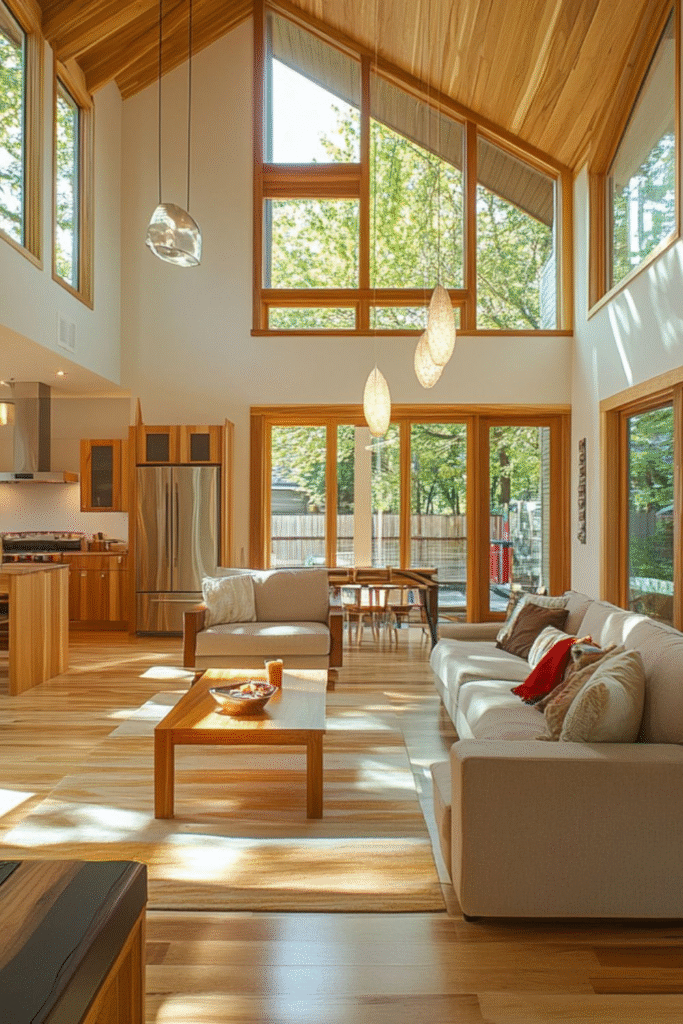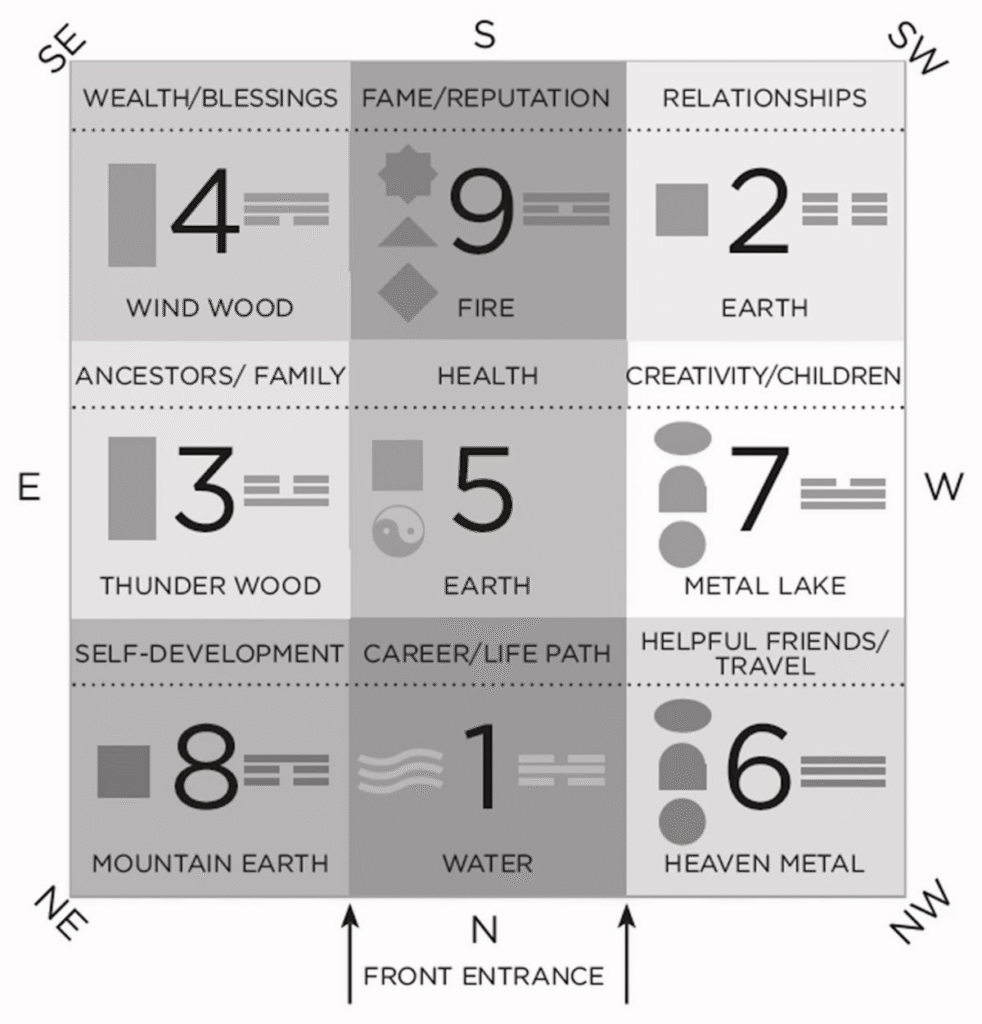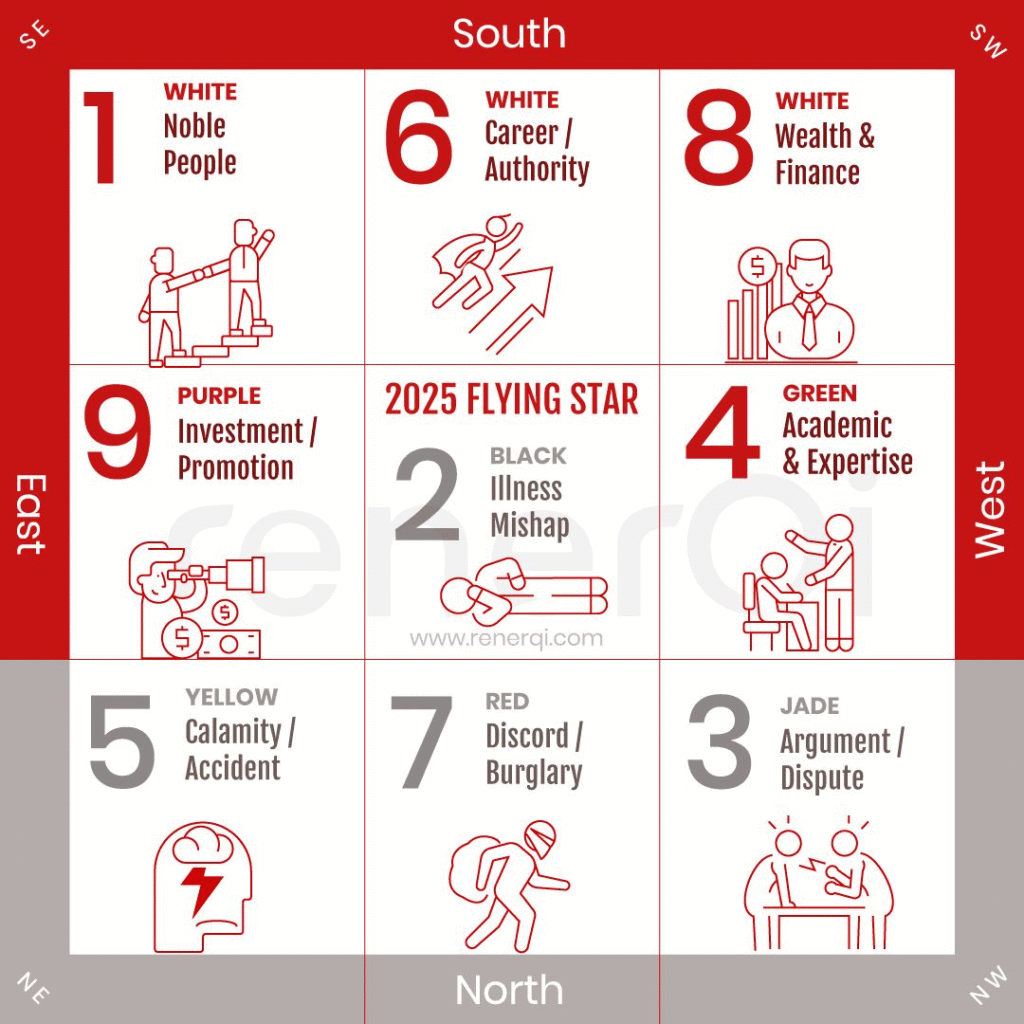Introduction: Where Ancient Intuition Meets Modern Intelligence
Feng Shui—an ancient Chinese practice rooted in balancing energy, flow, and harmony in spaces—has guided home designs for centuries. But now, in 2025, something radical is happening.
● Artificial intelligence is entering your home—not just through smart lights or voice assistants—but by predicting the emotional resonance of your floor plan.
● We’re talking about Algorithmic Feng Shui—an emerging blend of computational design, spatial psychology, and ancient wisdom.
● Can machines truly sense what makes a home feel good? Can AI replicate—or even outperform—human intuition in aligning energy, purpose, and peace?
Let’s explore how data-driven algorithms are reshaping a deeply emotional and spiritual dimension of interior design.

What Is Feng Shui—and Why Should You Care in 2025?
Before we dive into AI, let’s revisit what Feng Shui actually means:
● Feng Shui translates to “wind and water”—symbolizing energy that flows freely through natural and built environments.
● It’s not just superstition or luck charms. It’s about creating emotional symmetry, functional alignment, and holistic living.
● Core concepts like the Bagua map, five elements (wood, fire, earth, metal, water), and the yin-yang balance help design healthier and happier spaces.
And in a post-pandemic world where our homes double as offices, sanctuaries, and healing zones, Feng Shui is becoming relevant again—but with a twist.

Rise of Algorithmic Design in Architecture
● Computational design is already optimizing buildings for airflow, solar exposure, and structural efficiency.
● But now, emotion-driven algorithms are entering the chat—trying to read how a space makes you feel based on geometry, layout, and material choices.
● Startups like Spacemaker, Finch, and Autodesk’s generative design tools are beginning to quantify the quality of space beyond function.
So the question is: can algorithms now quantify something as personal as “energy flow”?
How AI Reads Your Home’s Emotional Energy
Here’s how this works in 2025:
▪ Input data: Floor plans, compass directions, material palettes, light entry, movement paths, color spectrum, and even resident biometrics.
▪ Machine learning: Algorithms are trained on thousands of homes, user feedback, psychological data, and emotional response patterns.
▪ Outputs: AI generates real-time scores for zones like “serenity index,” “chaos potential,” “focus zone quality,” and “emotional interference.”
You’re no longer just seeing a 3D render of your living room. You’re seeing a predictive heatmap of how each room might make you feel.

Case Study: AI + Feng Shui in Indian Homes
A Gurgaon-based interior design firm recently integrated AI-driven Feng Shui analytics in a luxury residential project.
● The client was suffering from poor sleep and anxiety—blaming it on work stress.
● The AI algorithm scanned their bedroom layout and flagged two issues:
▪ The bed was facing a sharp angular corridor (creating high “interference energy”)
▪ Their window faced direct west light during golden hour (intensifying overstimulation)
● Solution: The algorithm suggested repositioning the bed and adding organic material buffers (bamboo screen, indoor fountain).
● Result: Within two weeks, the client reported better sleep and reduced emotional fatigue.
It wasn’t superstition. It was data-backed spatial healing.
How Algorithms Apply the Bagua Map
Traditionally, Feng Shui uses the Bagua map—an octagonal chart representing 9 life areas like:
● Wealth
● Health
● Love
● Family
● Career
● Knowledge
● Fame
● Children
● Travel
With AI, we’re seeing dynamic Bagua overlays on your house plan, where algorithms adjust zones based on:
▪ Orientation (actual vs magnetic north)
▪ Emotional activities in zones (based on usage history from smart devices)
▪ Behavioral movement tracking (using IoT sensors)
▪ Mood-based lighting feedback (via color tuning LEDs)
The result? Your Bagua zones adapt in real time. A love zone might shift based on where a couple spends most quality time, not just compass direction.

AI Tools Emerging in This Space
Here are the tech players making this possible:
● EMOHA (Emotional Home Analyzer) – AI software that maps energy hotspots and cold zones using spatial layout and decor elements.
● MoodCast – A mobile app that scans your room and offers Feng Shui-based color suggestions based on your mood analytics.
● NeuroNest – Smart home AI that adapts your layout and lighting to reduce stress triggers and optimize calmness.
● SpaceSense.AI – Predicts how guests will emotionally perceive your home based on entrance sequences, focal points, and symmetry.
These are not astrology apps. They’re design science tools—built by spatial psychologists, architects, data scientists, and emotion AI researchers.
Benefits of Algorithmic Feng Shui
● No guesswork – You don’t need a guru. You need a floor plan and an API.
● Personalized emotional design – The same home can feel different to different people. AI adapts layouts to your specific personality and lifestyle data.
● Faster healing spaces – Homes can now be “pre-tested” for wellness factors before you move in.
● Optimized renovations – Instead of random makeovers, you use emotional flow data to prioritize zones that actually impact your life.
● Cross-cultural flexibility – AI can combine Feng Shui with Vaastu, Zen design, Scandinavian minimalism, or even biophilic principles for hybrid philosophies.

The Debate: Can AI Really Replace Intuition?
Here’s the problem: Feng Shui isn’t a formula—it’s a philosophy born from centuries of cultural memory.
So the critics ask:
▪ Can algorithms understand intention?
▪ Can they feel what it means for a home to be sacred?
▪ Is emotional response too nuanced to be modeled?
And most importantly: Will AI make us design-dependent and intuition-blind?
A New Role for Designers: The Digital Priesthood?
What if designers in the future are not just stylists—but emotional data interpreters?
Imagine your role shifting like this:
● From “choosing colors” → to translating emotional feedback into design form
● From “arranging furniture” → to curating neural harmony
● From “Feng Shui advisor” → to AI-guided emotional architect
In this model, design becomes both spiritual and digital. You’re no longer designing for the eyes—but for the soul and sensors.
Predictions: The Future of AI Feng Shui in Indian Interiors
By 2030, we could see:
● Real estate ads promoting “emotion-optimized” 2BHKs
● Developers offering AI-certified wellness layouts instead of just Vaastu compliance
● Personal AI companions who guide your furniture rearrangement for improved productivity and happiness
● Algorithmic interior designers who cross-reference your horoscope, emotional analytics, and furniture style preferences
The biggest shift? Homes that evolve with your emotional life.

Challenges & Risks
Of course, this fusion isn’t without challenges:
● Data privacy – Tracking mood, movement, and emotion opens ethical concerns.
● Over-reliance on tech – When intuition dies, creativity suffers.
● Cultural dilution – Replacing ancient wisdom with code may strip away spiritual meaning.
● Algorithm bias – Not everyone responds to spaces the same way; AI can misinterpret signals or standardize emotions.
Designers must step in—not just as users of AI—but critics, philosophers, and ethical guides.
Conclusion: Can You Code a Feeling?
Algorithmic Feng Shui doesn’t destroy tradition—it reframes it. It adds clarity to intuition, precision to energy, and personalization to spiritual design.
● In a world where every square foot matters, and emotional health is architecture’s next frontier—this hybrid practice may define the next decade of design.
● But it’s not about replacing instinct. It’s about enhancing it—with data, empathy, and intelligent tools.
Because maybe the future isn’t about AI vs tradition. Maybe it’s about AI-as-tradition, reborn in a new language.
📞 Ready to Design an Emotionally Intelligent Home?
Let me help you decode the emotional blueprint of your home.
● Get personalized spatial advice that blends AI tools + ancient design wisdom
● Turn chaotic homes into peaceful sanctuaries—intuitively and intelligently
● Book a consultation: contact@mishulgupta.com
● Explore more designs at www.mishulgupta.com
Serving homes across Haryana, Chandigarh, Delhi NCR, and Pan-India.
